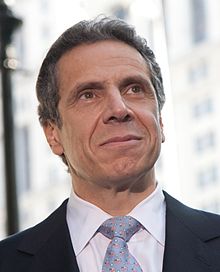
Cuomo
New York Gov. Andrew M. Cuomo has ordered the New York State Public Service to immediately start a thorough and detailed investigation into Comcast’s proposed purchase of Time Warner Cable, using new regulatory powers to reject any merger not in the “best interest” of Time Warner’s customers in New York.
“The State is taking a hands-on review of this merger to ensure that New Yorkers benefit,” Cuomo said. “The Public Service Commission’s actions will help protect consumers by demanding company commitments to strong service quality, affordability, and availability.”
New York implemented one of the nation’s strongest cable franchise laws in April that will now require the two cable operators to prove that any merger is in the public interest. An earlier law backed by the telecom industry put the burden of proof on the Commission to prove such transactions were not beneficial to the public.
Cuomo has requested the PSC check how the proposed merger will expand broadband in under-served areas and offer better broadband access to schools. The PSC will critically review the protections being offered to low income customers as well as how the proposed merger might impact consumer pricing and telecommunication competition overall.
PSC chair Audrey Zibelman said, “To determine whether the proposed transaction is in the public interest, the Commission will examine the proposal to ensure services the merged company would provide will be better than the service customers currently receive.”
 One way to prove the merged company would not offer better service is to alert the Commission Comcast plans to reimpose usage caps on its customers while Time Warner Cable does not have any compulsory usage limits or usage billing.
One way to prove the merged company would not offer better service is to alert the Commission Comcast plans to reimpose usage caps on its customers while Time Warner Cable does not have any compulsory usage limits or usage billing.
Time Warner now serves 2.6 million subscribers in every major New York community: Buffalo, Rochester, Syracuse, Albany and the boroughs of Manhattan, Staten Island, Queens and parts of Brooklyn.
The PSC is likely to hold public forums across the state in June to hear the views of affected consumers, but the record is now open to written and telephoned comments from anyone interested in the merger.
There are several ways to provide your comments to the Commission. Comments should refer to: “Case 14-M-0183.”
Via the Internet or Mail: The public may send comments electronically to the Hon. Kathleen H. Burgess, Secretary, at [email protected] or by mail or delivery to Secretary Burgess at the New York State Public Service Commission, Three Empire State Plaza, Albany, New York 12223-1350. Comments may also be entered directly into the case file by clicking on the “Post Comments” box at the top of the page.
Toll-Free Opinion Line: Individuals may choose to phone in comments by calling the Commission’s Opinion Line at 1 800-335-2120. This line is set up to receive in-state calls 24-hours a day. These calls are not transcribed, but a summary is provided to staff who will report to the Commission.


 Subscribe
Subscribe The announced merger of Comcast and Time Warner Cable is expected to have far-reaching implications for other companies in the video and broadband business, with expectations 2014 could be one of the busiest years in a decade for telecom industry mergers and buyouts.
The announced merger of Comcast and Time Warner Cable is expected to have far-reaching implications for other companies in the video and broadband business, with expectations 2014 could be one of the busiest years in a decade for telecom industry mergers and buyouts. In a less likely deal Sprint is still trying to pursue T-Mobile USA for a potential merger and if regulators reject that idea, Charles Ergen’s Dish Network is said to be interested.
In a less likely deal Sprint is still trying to pursue T-Mobile USA for a potential merger and if regulators reject that idea, Charles Ergen’s Dish Network is said to be interested.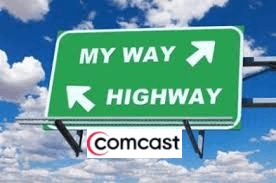 Comcast will introduce usage-based billing on all of its broadband customers nationwide within five years, whether they like it or not.
Comcast will introduce usage-based billing on all of its broadband customers nationwide within five years, whether they like it or not.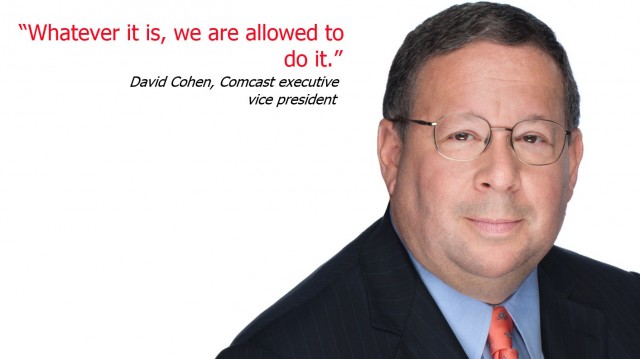 If the merger is approved, Comcast will face significantly less competition in many Verizon service areas also served by Time Warner Cable. Verizon FiOS expansion has ended and the company continues to de-emphasize its DSL service, which is the only broadband competition Time Warner Cable faces in many upstate New York and western Massachusetts communities.
If the merger is approved, Comcast will face significantly less competition in many Verizon service areas also served by Time Warner Cable. Verizon FiOS expansion has ended and the company continues to de-emphasize its DSL service, which is the only broadband competition Time Warner Cable faces in many upstate New York and western Massachusetts communities.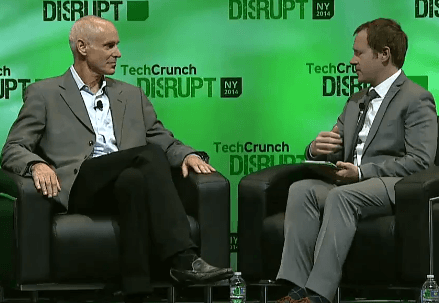
 Smit also promised major broadband speed upgrades and other improvements for Time Warner Cable customers, but nobody mentioned Comcast’s gradual reintroduction of usage caps on residential broadband accounts.
Smit also promised major broadband speed upgrades and other improvements for Time Warner Cable customers, but nobody mentioned Comcast’s gradual reintroduction of usage caps on residential broadband accounts.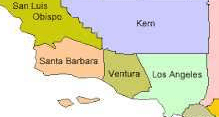 Currently, third-party access to cable broadband technology is provided on a voluntary basis by cable operators. Regulated telephone companies like Verizon and AT&T that serve California are required to offer open access to competitors, at least on their copper line networks.
Currently, third-party access to cable broadband technology is provided on a voluntary basis by cable operators. Regulated telephone companies like Verizon and AT&T that serve California are required to offer open access to competitors, at least on their copper line networks.